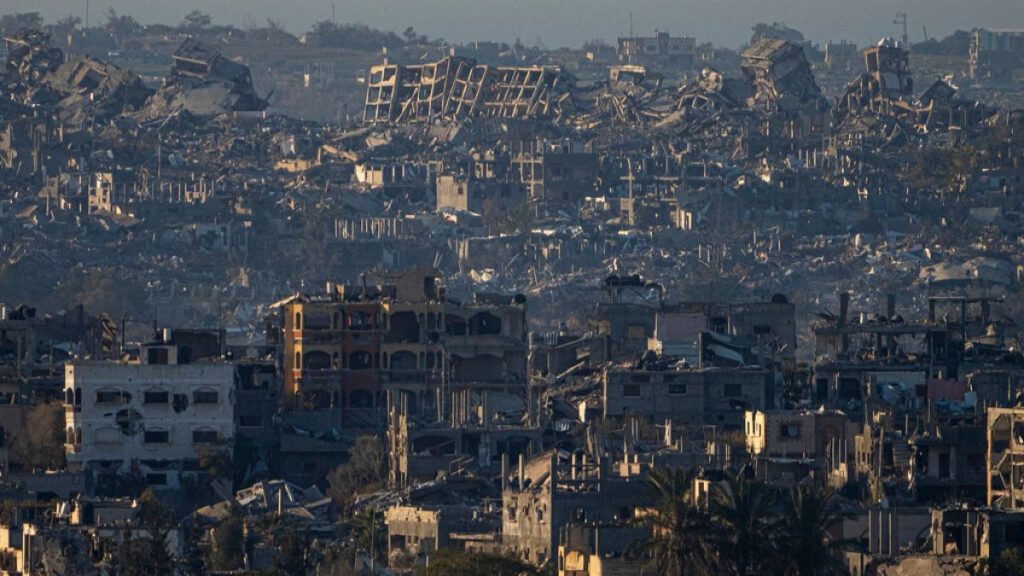The announcement of a potential ceasefire agreement between Israel and Hamas has ignited a flicker of hope amidst the devastating 15-month war that has ravaged the Gaza Strip. Mediated by the United States and Qatar, the deal, if finalized, promises a temporary respite from the relentless cycle of violence that has claimed countless lives and inflicted untold suffering on both sides of the conflict. While details remain scarce pending official confirmations from both Hamas and the Israeli government, initial reports suggest the agreement includes the release of dozens of hostages held by Hamas, a key demand of Israel throughout the conflict. This potential breakthrough marks a significant turning point in the protracted war, offering the possibility, however fragile, of a pathway towards a more enduring peace.
The protracted nature of the Gaza conflict underscores the deep-seated animosity and complex web of political and security concerns that have fueled the decades-long struggle. The war, which began with Hamas’s unprecedented cross-border incursion into Israel in October 2023, has been characterized by intense fighting, indiscriminate rocket attacks, and devastating retaliatory strikes. The humanitarian cost has been catastrophic, with the Gaza Strip, already grappling with a dire humanitarian crisis, pushed further to the brink of collapse. The potential ceasefire, while not a comprehensive solution to the underlying issues, represents a crucial first step in mitigating the immediate suffering and creating space for dialogue and potential long-term resolutions.
The mediation efforts of the United States and Qatar have been instrumental in navigating the intricate political landscape and facilitating communication between the two warring parties. Qatar, with its longstanding ties to Hamas, has played a critical role as a conduit for negotiations, while the United States, a staunch ally of Israel, has leveraged its diplomatic influence to encourage a cessation of hostilities. The success of these mediation efforts highlights the importance of international cooperation in addressing complex conflicts and the potential for diplomatic engagement to pave the way for peaceful resolutions.
The reported inclusion of hostage release as a central component of the ceasefire agreement signifies a significant concession by Hamas and underscores the intense pressure the group has faced in the wake of its October 2023 incursion. The return of hostages holds immense symbolic and emotional weight for Israel, and their release is likely to be seen as a crucial victory. However, the details surrounding the number and specific identities of the hostages to be released remain unclear, and the logistical complexities of the exchange will require careful coordination and verification to ensure its successful implementation.
The tentative nature of the ceasefire agreement necessitates cautious optimism. While the cessation of hostilities offers a much-needed reprieve, the underlying issues that have fueled the conflict remain unresolved. The long-term success of the ceasefire will hinge on the willingness of both Hamas and Israel to engage in good-faith negotiations to address the root causes of the conflict, including the blockade of Gaza, the status of Palestinian prisoners, and the recognition of Hamas as a legitimate political entity. The international community will play a crucial role in supporting these negotiations and providing the necessary humanitarian assistance to rebuild Gaza and address the urgent needs of its population.
The potential ceasefire represents a fragile opportunity to break the cycle of violence and move towards a more sustainable future for both Israelis and Palestinians. The road ahead remains fraught with challenges, and the possibility of renewed hostilities cannot be dismissed. However, the agreement provides a glimmer of hope that dialogue and diplomacy, however difficult, can ultimately prevail over conflict and bloodshed. The international community must seize this opportunity to support the ceasefire and encourage both sides to pursue a path of reconciliation and peaceful coexistence. The ultimate success of this endeavor will depend on the sustained commitment of all stakeholders to find a lasting solution to the enduring conflict that has plagued the region for far too long.














